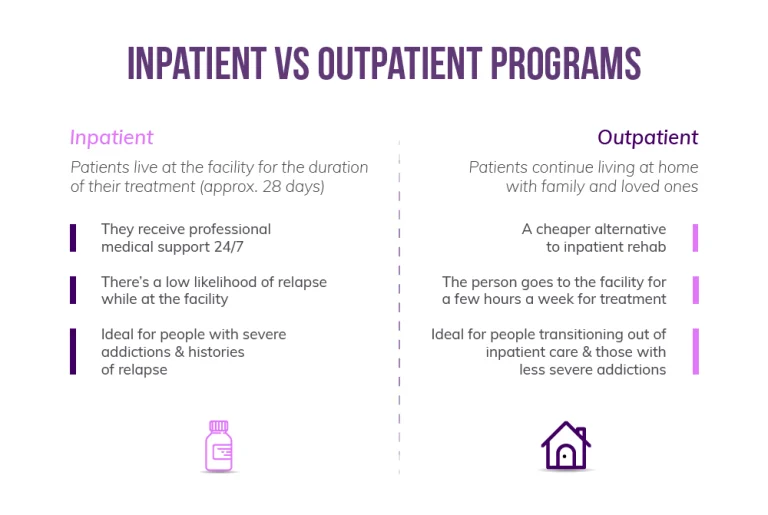wellhealthorganic.com : Key Signs of Gastroenteritis
Gastroenteritis, or the stomach flu, is when your stomach and intestines get inflamed due to viruses, bacteria, or parasites. It causes vomiting, nausea, stomach cramps, and fever. You can catch it from dirty food, water, or being around someone sick. To feel better, you need to drink lots of fluids, and sometimes take medicine if it’s really bad. Washing your hands, handling food safely, and getting certain vaccines can help prevent it.

What is Gastroenteritis?
wellhealthorganic.com : key signs of gastroenteritis, often called the stomach flu, is an inflammation of the stomach and intestines caused by infections from viruses, bacteria, or parasites. Understanding gastroenteritis is crucial because it helps in recognizing symptoms early.
That helps you to seek appropriate treatment, and take preventive measures to avoid complications such as dehydration and severe malnutrition. Effective management and prevention can significantly reduce the spread and impact of this common illness.
Key Signs of Gastroenteritis
Gastroenteritis typically happens with several key signs and symptoms.
Common signs
wellhealthorganic.com : key signs of gastroenteritis, or stomach flu, usually causes symptoms like diarrhoea, vomiting, nausea, and abdominal pain or cramps. You might also get a fever. These signs make you feel pretty awful and can disrupt your day-to-day life. It’s important to stay hydrated and rest when experiencing these symptoms.
Severe signs
Severe signs of wellhealthorganic.com : key signs of gastroenteritis include dehydration, which can make you feel dizzy, have a dry mouth, and reduce urination. Bloody stools and a high fever are also serious symptoms. You should see a doctor if these bad signs don’t go away because they can cause more problems.
PS: Learn about the value of eating peels by wellhealthorganic.com
Causes of Gastroenteritis
Many causes of gastroenteritis are described below so that you can identify it and take the necessary precautions.
Viral Causes
Some stomach bugs like norovirus and rotavirus can make you sick with gastroenteritis. They spread easily in places where people are close together, like schools and nursing homes. You might have diarrhea, throw up, or feel cramps in your stomach. Norovirus especially can cause big outbreaks on cruise ships and in communities.
Orchid Orchids are exotic flowers name known for their intricate and symmetrical blooms. With over 25,000 species, orchids are incredibly diverse, ranging from the petite Phalaenopsis to the flamboyant Cattleya. They are often associated with luxury and delicate beauty.
Bacterial Causes
Bacteria such as E. coli, Salmonella, and Campylobacter can give you gastroenteritis from eating or drinking contaminated stuff. It can make you have really bad diarrhea, belly pain, and sometimes a fever. These germs are often in foods like undercooked meat, unpasteurized milk, and dirty water.
Parasitic Causes
Sometimes parasites like Giardia and Cryptosporidium can cause gastroenteritis if you swallow them from dirty water or food. You might get diarrhoea, cramps, and lose weight if you have these parasites. They usually hang out in places with untreated water or if you touch someone who’s infected.
These modern interpretations captivate audiences. They offer fresh insights into age-old tales. Bhoot Ki Kahani continues to evolve, engaging new generations.
Other causes
Gastroenteritis can also happen if you swallow something that’s poisonous, like certain chemicals or medicines that upset your stomach. You might feel sick, throw up, have diarrhoea, or your stomach could hurt. It’s important to be careful and avoid things that could make you sick with gastroenteritis.
Transmission of wellhealthorganic.com : Key Signs of Gastroenteritis
There are certain reasons which enhance the transmission of gastroenteritis.
- Contaminated food or water – Gastroenteritis can spread when you eat or drink something that has germs like viruses, bacteria, or parasites in it. These germs can get into food or water if it’s not handled or cooked properly.
- Person-to-person contact – You can also get gastroenteritis by touching or being close to someone who’s infected. Germs can spread easily through close contact, especially if someone doesn’t wash their hands well.
- Poor hygiene practices – Not washing hands properly after using the bathroom or before handling food can spread germs that cause gastroenteritis. It’s important to wash hands with soap and water for at least 20 seconds to prevent spreading germs.
Diagnosis of Gastroenteritis
These ways help to diagnose wellhealthorganic.com : key signs of gastroenteritis.
Medical history and physical examination
Doctors often start by asking about your symptoms and medical history. They’ll check your stomach and ask about your recent activities to understand what might be causing your symptoms. This can help them understand the severity of your condition.
Laboratory tests: stool tests, blood tests
To confirm gastroenteritis, doctors may ask for stool tests to check for bacteria, viruses, or parasites. Blood tests can also help detect signs of infection or dehydration, which is common with gastroenteritis. These tests help doctors choose the right treatment for you.
Treatment of Gastroenteritis
Hydration:
It’s really important to drink a lot of fluids when you have stomach flu. If it’s not too bad, drinks with electrolytes can help replace what you’ve lost. In severe cases where dehydration is severe, IV fluids may be needed to quickly restore hydration levels.
Medications
Treatment depends on the cause. Antibiotics are prescribed for bacterial gastroenteritis, while antiparasitic drugs are used for parasitic infections like Giardia. Antiemetics help relieve nausea and vomiting, and antidiarrheal medications can reduce diarrhoea symptoms.
Avoiding certain medications unless prescribed
It’s important to avoid certain medications like over-the-counter antidiarrheal drugs unless advised by a doctor. These medications can sometimes make the infection worse or mask symptoms that are important for diagnosis and treatment. Always listen to what your doctor says to get better quickly.
Prevention of wellhealthorganic.com : Key Signs of Gastroenteritis
You can prevent gastroenteritis by following some of the important key steps in your daily life.
- Handwashing with soap and water – Wash hands often, especially before eating or preparing food, and after using the bathroom. This helps stop germs from spreading.
- Proper food handling and cooking – Cook foods like meat thoroughly, and store leftovers properly. Avoid eating raw or undercooked foods to prevent getting sick.
- Vaccines for certain viruses – Vaccines can protect against viruses like rotavirus, especially important for young children.
- Staying home when sick to prevent spreading – If you’re feeling sick with gastroenteritis, stay home to avoid spreading germs to others. Rest and recover until you feel better to protect yourself and others.
Complications of Gastroenteritis
When you have stomach flu, it usually gets better with rest and care at home. But sometimes, it can cause serious complications. Dehydration is common if you have lots of diarrhoea and throw up a lot. You might feel dizzy, your mouth might feel dry, and you might not pee much.
In severe cases, prolonged gastroenteritis can cause severe malnutrition, particularly if the illness affects the ability to eat and absorb nutrients. It can make you really weak.
If you keep feeling sick or your symptoms get worse, it’s important to see a doctor.
Signs like being very thirsty, having dark urine, or feeling lightheaded mean you need help. Most people get better from stomach flu with the right care, but it’s important to watch out for these things to stay healthy.
Special Considerations for Children
Special considerations for children to avoid gastroenteritis are given below:
- Increased susceptibility – Children are more likely to get gastroenteritis because their immune systems are still developing, making them more vulnerable to infections.
- Importance of early recognition and treatment – It’s crucial to notice symptoms early and get treatment quickly to avoid complications like dehydration. Children can get very sick from gastroenteritis, so it’s important to take it seriously and get help if needed.
When to Seek Medical Attention
If you or your child have severe or worsening symptoms like constant throwing up or a high fever, see a doctor. Signs of dehydration such as a very dry mouth or peeing less are serious too. If these symptoms last more than a few days, it’s important to get medical help.
Also if you notice blood in vomit or stool, or if you’re unable to keep fluids down, it’s also important to seek medical attention promptly. This is especially crucial for young kids or people with weaker immune systems to prevent problems and get the right treatment.
Conclusion
It’s important to understand wellhealthorganic.com : key signs of gastroenteritis so you can recognize it early and get the right help. This illness happens because of viruses, bacteria, or parasites, and it makes you have symptoms like diarrhoea, throwing up, and stomach ache. Usually, you can feel better by resting, drinking lots of fluids, and sometimes taking medicine. But if it gets really bad, it can lead to problems like dehydration or malnutrition.






